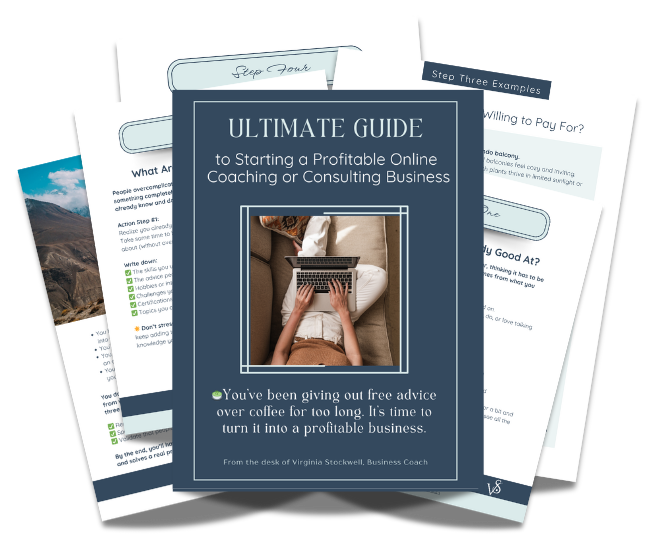Step-by-Step: How do I release imposter syndrome?

Overcoming imposter syndrome is a gradual process that involves changing negative thought patterns and building confidence.
I enjoy step-by-step instructions, so here's a guide to help you release imposter syndrome:
Step 1 Acknowledge Your Feelings: Recognize and acknowledge that you are experiencing imposter syndrome. Understand that it is a common phenomenon, and many successful individuals have faced similar feelings.
Step 2 Identify Negative Thoughts: Pay attention to the negative thoughts and self-doubt that contribute to imposter syndrome. Identify specific situations or triggers that make these thoughts more pronounced.
Step 3 Challenge Negative Thoughts: Question the validity of your negative thoughts. Ask yourself whether there is evidence to support these thoughts or if they are based on unfounded fears. Challenge and reframe these thoughts with more realistic and positive perspectives.
Step 4 Celebrate Achievements: Recognize and celebrate your achievements, no matter how small. Keep a record of your successes to remind yourself of your capabilities and accomplishments.
Step 5 Set Realistic Goals: Establish realistic and achievable goals. Break larger tasks into smaller, manageable steps. This can help you build confidence as you accomplish each step.
Step 6 Seek Feedback: Request feedback from colleagues or mentors. Understand that feedback is an opportunity for growth and it can provide valuable insights into your strengths and areas for improvement.
Step 7 Accept Imperfection: Embrace the fact that perfection is unattainable. Everyone makes mistakes, and it's a natural part of the learning process. Learn from your errors rather than viewing them as a reflection of your competence.
Step 8 Talk About It: Share your feelings of imposter syndrome with trusted friends, family, or mentors. Opening up about your experiences can provide emotional support and help you realize that others may have faced similar challenges.
Step 9 Develop a Support System: Surround yourself with a supportive network of people who encourage and uplift you. Having a strong support system can boost your confidence and provide reassurance during difficult times.
Step 10 Continuous Learning: Embrace a growth mindset and view challenges as opportunities to learn and improve. Recognize that skills can be developed over time, and no one knows everything from the start.
Overcoming imposter syndrome is a gradual process that involves changing negative thought patterns and building confidence. Here's a step-by-step guide to help you release imposter syndrome:
-
Acknowledge Your Feelings:
- Recognize and acknowledge that you are experiencing imposter syndrome. Understand that it is a common phenomenon, and many successful individuals have faced similar feelings.
-
Identify Negative Thoughts:
- Pay attention to the negative thoughts and self-doubt that contribute to imposter syndrome. Identify specific situations or triggers that make these thoughts more pronounced.
-
Challenge Negative Thoughts:
- Question the validity of your negative thoughts. Ask yourself whether there is evidence to support these thoughts or if they are based on unfounded fears. Challenge and reframe these thoughts with more realistic and positive perspectives.
-
Celebrate Achievements:
- Recognize and celebrate your achievements, no matter how small. Keep a record of your successes to remind yourself of your capabilities and accomplishments.
-
Set Realistic Goals:
- Establish realistic and achievable goals. Break larger tasks into smaller, manageable steps. This can help you build confidence as you accomplish each step.
-
Seek Feedback:
- Request feedback from colleagues, mentors, or supervisors. Understand that feedback is an opportunity for growth, and it can provide valuable insights into your strengths and areas for improvement.
-
Accept Imperfection:
- Embrace the fact that perfection is unattainable. Everyone makes mistakes, and it's a natural part of the learning process. Learn from your errors rather than viewing them as a reflection of your competence.
-
Talk About It:
- Share your feelings of imposter syndrome with trusted friends, family, or mentors. Opening up about your experiences can provide emotional support and help you realize that others may have faced similar challenges.
-
Develop a Support System:
- Surround yourself with a supportive network of people who encourage and uplift you. Having a strong support system can boost your confidence and provide reassurance during difficult times.
-
Continuous Learning:
- Embrace a growth mindset and view challenges as opportunities to learn and improve. Recognize that skills can be developed over time, and no one knows everything from the start.
-
Professional Help:
- If imposter syndrome significantly impacts your well-being and career, consider seeking professional help. A therapist or counselor can provide guidance and strategies to overcome these feelings.
Remember that overcoming imposter syndrome is a gradual process, and it's okay to seek support along the way. Be patient with yourself and celebrate your progress.

